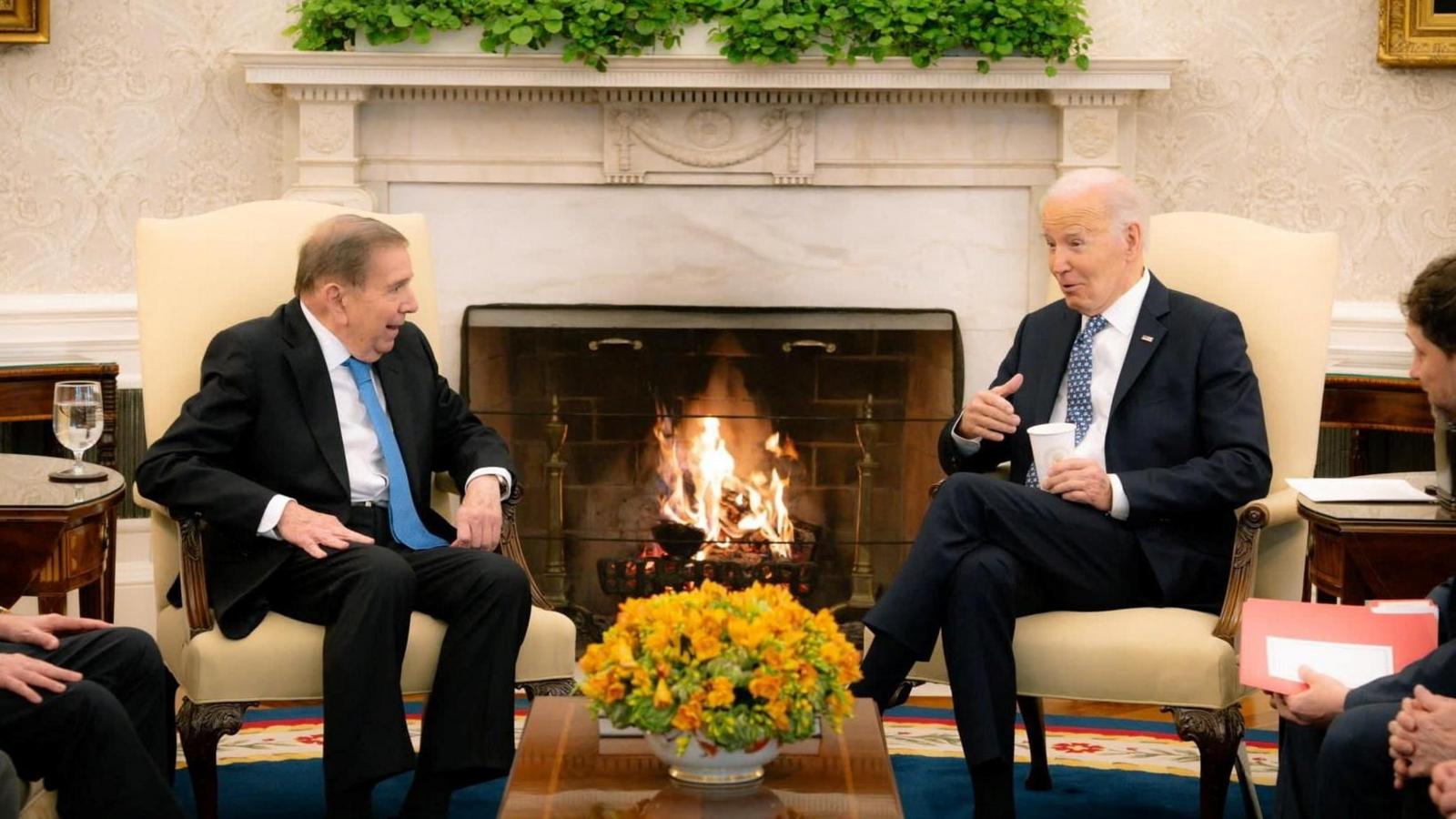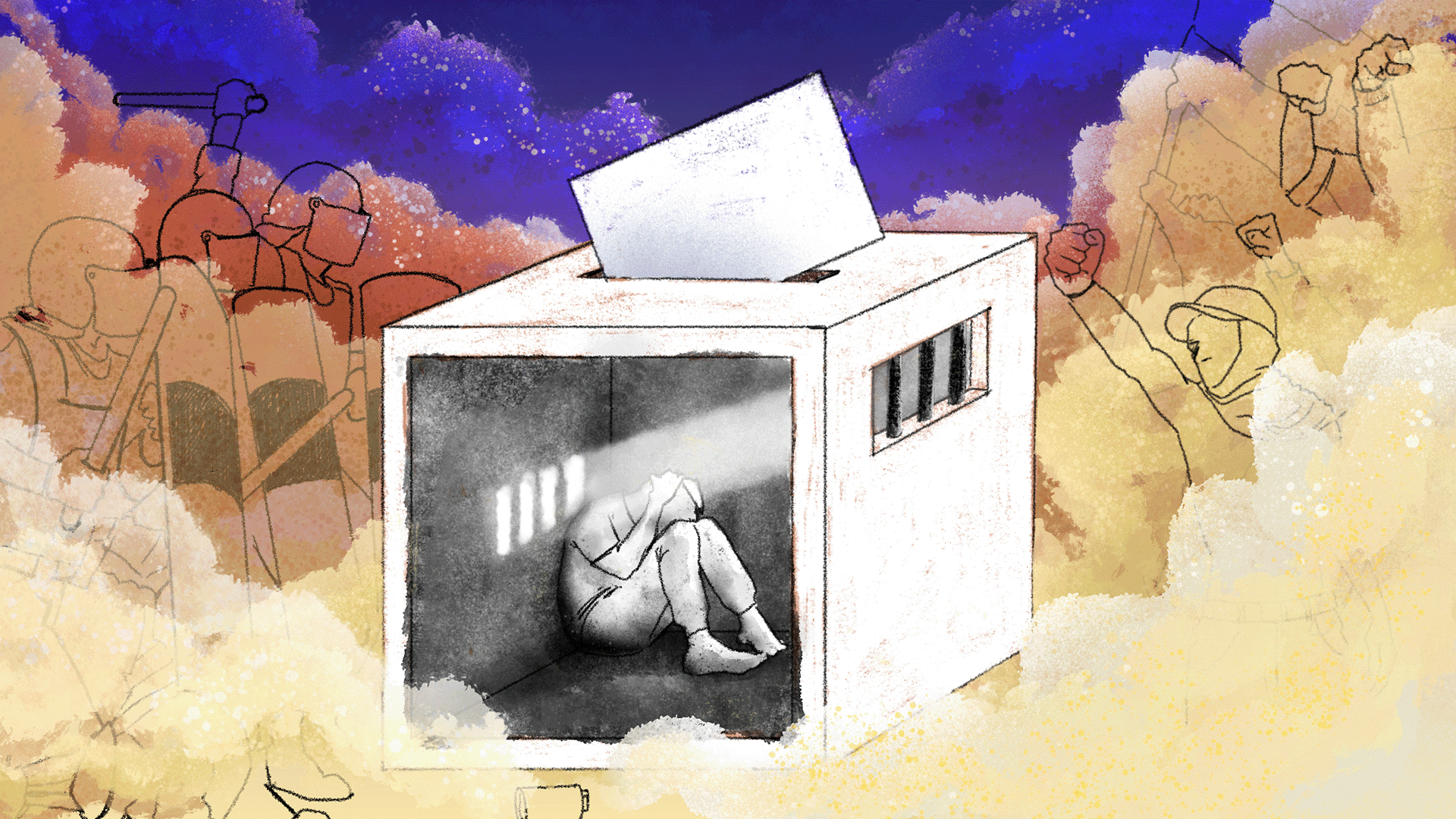Venezuela's Maduro sworn in for third term after contested elections
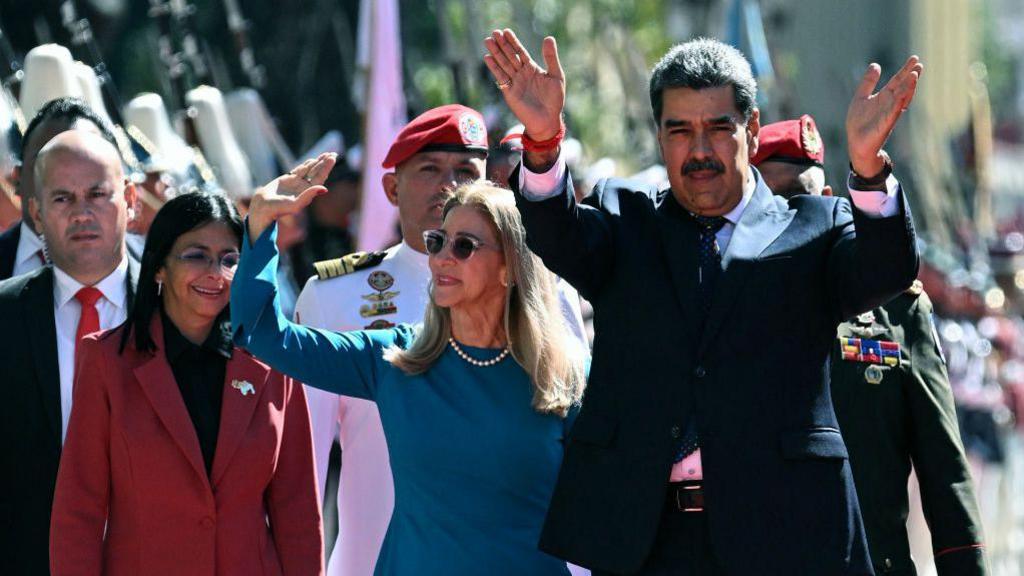
- Published
Venezuela's Nicolás Maduro has been sworn in for a third term as president, six months after disputed elections which the opposition and international community say he lost.
President Maduro took the oath of office before parliament on Friday, vowing his third six-year term in office would be a "period of peace".
The official results of July's election have been widely rejected by the international community, including neighbours Brazil and Colombia.
The 62-year-old's inauguration comes one day after Venezuela's opposition leader María Corina Machado was briefly arrested and then freed after addressing a protest rally.
Information Minister Freddy Nanez dismissed the reports of Machado's detention as a "media distraction" after her team said she was "violently intercepted" in eastern Caracas.
In a speech during his inauguration, Maduro said: "I swear that this new presidential term will be one of peace, prosperity, equality and new democracy. I swear it by history, I swear it on my life. I will keep my word."
Maduro was declared the winner of July's presidential election by the official electoral commission. The opposition and many countries, including the US, had rejected the result and recognised opposition candidate Edmundo González as the legitimate president-elect.
González fled Venezuela in September and has been living in Spain, but this month he went on a tour of the Americas to rally international support.
The Maduro government has issued an arrest warrant for him, offering a $100,000 (£81,755) reward for information leading to his detention.
It comes as Maduro was declared the winner of July's presidential election by Venezuela's National Electoral Council (CNE), which is closely aligned with the government.
Machado, whom González replaced on the ballot after she was barred from running herself, has also been targeted. She went into hiding soon after the disputed elections, and was last seen in public in August before Thursday's rally.
Also on Thursday, the United Nations expressed its alarm after it received reports of arbitrary detentions and intimidation in Venezuela ahead of the opposition marches.
It highlighted the arrest of Carlos Correa, the head of an NGO promoting press freedom, who was seized by unidentified hooded men earlier in the week.
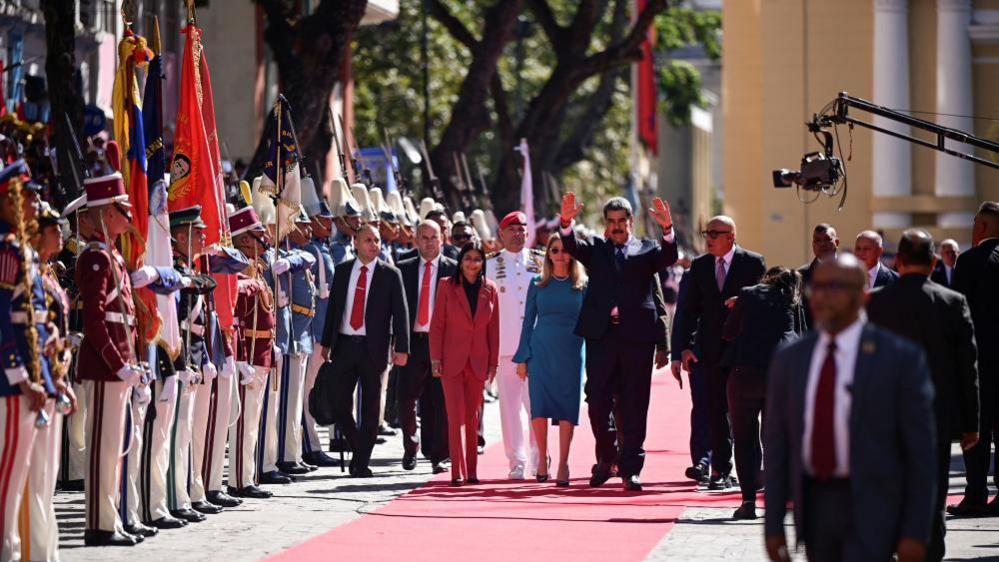
Related topics
- Published9 January
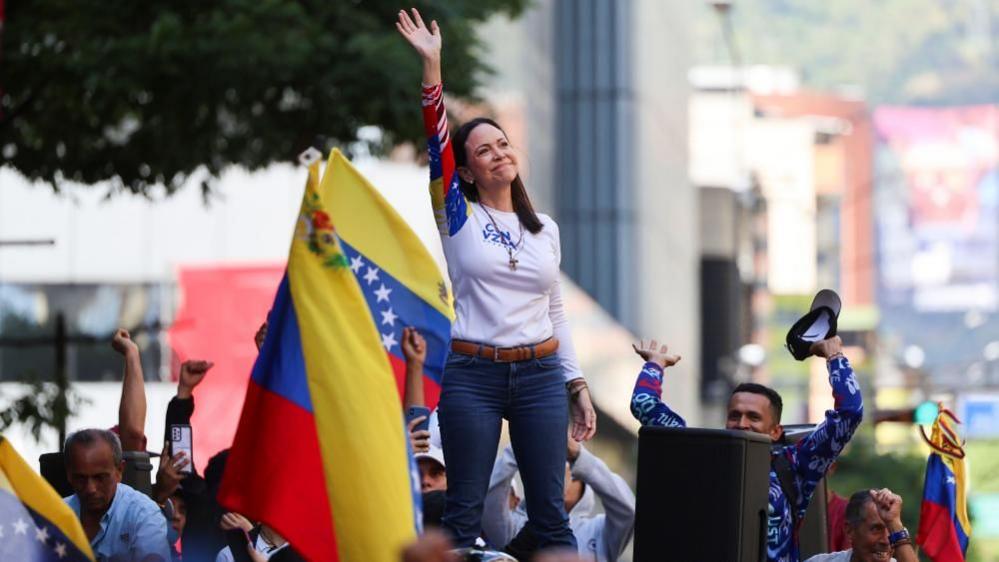
- Published7 January
